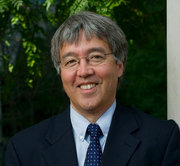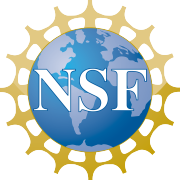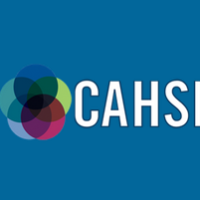Update from CISE: Highlighting CISE’s Commitment to Early-Career Faculty

As I enter my sixth month at NSF, my colleagues here tell me that I’m no longer allowed to introduce myself as “the new AD.” In fact, many actually say I lost that privilege after my first six weeks. In that short amount of time, I testified before Congress, presented to the National Science Board, and rolled out our 2016 budget request–three activities that my predecessor, Farnam Jahanian, had told me were among the most challenging in the CISE AD job.
 Although the first six months have been a whirlwind, there have been several clear constants from the start–the passion, experience, wisdom, and vision of the CISE staff (and, more broadly, of NSF leadership, including the ADs of the other NSF directorates, with whom I’ve been working very closely), and the tremendously important role and opportunities in our CISE discipline.
Although the first six months have been a whirlwind, there have been several clear constants from the start–the passion, experience, wisdom, and vision of the CISE staff (and, more broadly, of NSF leadership, including the ADs of the other NSF directorates, with whom I’ve been working very closely), and the tremendously important role and opportunities in our CISE discipline.
Another constant has been our dedication to inspiring and retaining talented individuals to the CISE field. I want to take this opportunity to highlight just a few activities that CISE supports to help nurture early career faculty: the CAREER program, the CISE Research Initiation Initiative, and meetings and workshops specifically for early-career faculty.
- The Faculty Early Career Development (CAREER) Program is a NSF-wide activity that offers one of the Foundation’s most prestigious awards for faculty members beginning their independent careers. The program aims to support junior faculty who exemplify the role of teacher-scholar through outstanding research, excellent education, and the integration of education and research within the context of the mission of their organization. The program provides a minimum award of $400,000 over five years.
CISE supports CAREER awards across all of computer and information science and engineering, as well as the broader community of scientists, engineers, and educators involved with cyberinfrastructure research. For example, we recently issued a Dear Colleague Letter to raise awareness of CAREER in the cyberinfrastructure research community. Additional information about ACI’s interests in CAREER can be found in “Cyberinfrastructure Framework for 21st Century Science and Engineering (CIF21)” and in the CAREER Frequently Asked Questions (FAQs) document (see question 34). CAREER proposals are due this year on July 21.
- The CISE Research Initiation Initiative (CRII), now in its second year, was created to initiate computer and information science and engineering research activities for individuals who, after attaining their Ph.D., are in their first academic position. CRII encourages research independence by providing the opportunity for early-career researchers to recruit and mentor their first graduate students, enabling a subsequent stream of projects, discoveries, students, and publications. Eligible applicants must not have received any other grants or contracts in the PI role from any federal department, agency, or institution (see the solicitation for certain exceptions). Project budgets are not to exceed $175,000 for up to two years. Proposals may address any area of CISE research and are typically due in late September. The deadline for proposals this year is September 30.
- CISE hosts several meetings and workshops throughout the year to help acquaint early-career faculty to NSF’s programs, solicitation requirements, and merit review process. Examples include the CISE CAREER proposal writing workshop, aspiring PI meetings, and early-career investigators workshops.
The CISE CAREER proposal writing workshop is typically held in the Washington, D.C. area in March of each year, and is tailored to help attendees with CAREER proposal submissions (e.g., see the agenda and documents from the workshop that took place this past March).
Aspiring PI meetings and early-career investigators workshops are generally discipline- or program-specific and are usually held in conjunction with appropriate professional society meetings. Aspiring PI meetings have been or are planned to be held for the Secure and Trustworthy Cyberspace (SaTC), Cyber-Physical Systems (CPS), and Smart and Connected Health (SCH) programs. They are specifically designed for researchers who aspire to participate in these programs and provide an understanding of what NSF (and NSF review panels) consider when reviewing proposals submitted to these programs.
Early-career investigators meetings often include a wider range of researchers (e.g., senior Ph.D. candidates, postdoctoral fellows, research scientists, and assistant professors) and have some portion of the meeting dedicated to discussionng of future research directions for that particular community.
These programs demonstrate CISE’s commitment to supporting the growth and development of future generations of scientists and engineers who will dedicate their careers to advancing research and education in computer and information science and engineering and to developing the use of cyberinfrastructure across the science and engineering enterprise.
During my visits to universities since joining NSF, I’ve had the opportunity to meet with a number of faculty, particularly early-career faculty, who have told me how important and valuable these programs have been to them.
Finally, I want to highlight an important change that will affect proposal submissions to many CISE programs this fall. CISE has revised the submission windows for its core programs and the Secure and Trustworthy Cyberspace (SaTC) program for the 2015-2016 academic year:
- Medium and large proposals, September 2015;
- Small proposals, November 2015.
These changes are being made to ease the “crunch” of community participation in spring panels and funding decisions that typically occur at NSF near the end of the fiscal year. Note that these revised windows will not apply to the Faculty Early Career Development (CAREER) or CISE Research Initiation Initiative (CRII) programs. For complete details, please see a Dear Colleague Letter (NSF 15-079) published on May 13, 2015, as well as the program solicitations.
I am even more convinced now than ever that the impacts of CISE are motivating profound changes in the conduct of science and engineering research and education broadly and in society more generally. I invite you to continue to work with CISE to nurture the next generation of researchers and to continue to advance the frontiers of knowledge, discovery, and innovation. It is truly an amazing time to be involved in computing!








